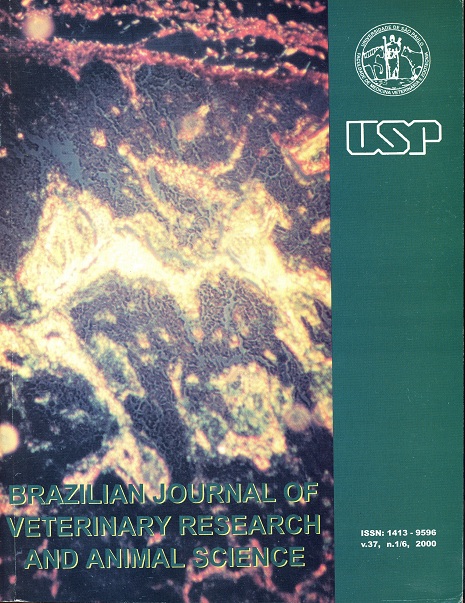Use of drones (Apis mellifera L.) in the detection of adulterated beeswax
DOI:
https://doi.org/10.1590/S1413-95962000000600015Keywords:
Classical Conditioning, Behavior, Drone, Proboscide, BeeswaxAbstract
This research evaluated the ability of Africanized honey bee (Apis mellifera L.) drones to detect adulterated beeswax using the proboscis extension reflex (PER). Two hundred and forty drones were divided into 12 groups containing different levels of adulterated beeswax (100% beeswax, 90% beeswax..., 10% beeswax, 0% beeswax). An air stimulus was included as a control for the possible influence of the air flux per se. The animals were maintained in metal tubes, harnessed with Ducktape® between the head and thorax. The results of the drones performance in PER olfactive conditioning indicate that these animals are able to detect different levels of adulterated beeswax. The drones shown a better response to the treatment containing 100% of beeswax. This bioassay can serve as an alternative tool in the screening of beeswax in beekeeping and industry.Downloads
Download data is not yet available.
Downloads
Published
2000-12-01
Issue
Section
ZOOTECHNICS
License
The journal content is authorized under the Creative Commons BY-NC-SA license (summary of the license: https://
How to Cite
1.
Silva M da C, Aquino I de S, Abramson CI, Santos JW dos. Use of drones (Apis mellifera L.) in the detection of adulterated beeswax. Braz. J. Vet. Res. Anim. Sci. [Internet]. 2000 Dec. 1 [cited 2024 Jul. 26];37(6):501-3. Available from: https://www.revistas.usp.br/bjvras/article/view/5870





